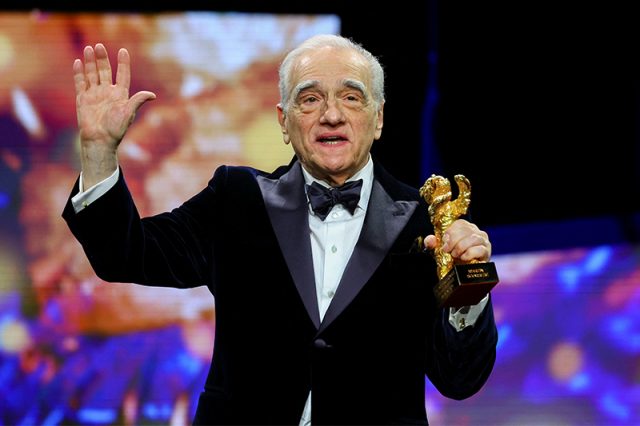
BERLIN — Martin Scorsese, in Berlin to receive a lifetime achievement award from the city’s film festival weeks before his latest movie, “Killers of the Flower Moon,” will be competing at the Oscars with 10 nominations, is already planning his next project.
The director, who as a young man considered a priestly vocation before becoming cinema’s most famous maker of gangster movies, said that after some meetings with Pope Francis he was mulling ways of making a film on Jesus, although the project’s contours were not yet clear.
“(The Pope) called at one point at a meeting for fresher ways of thinking about the essentials of Christianity,” the 81-year-old filmmaker told a news conference. “I want to make something unique and different that could be thought-provoking.”
Such a project would be his second look at the foundations of Christianity after 1988’s “The Last Temptation of Christ”, which emphasized the human frailty of Jesus and was banned in some countries and brought Scorsese death threats.
The Berlinale’s Honorary Golden Bear was intended partly to honor Scorsese’s work preserving old films for posterity, said Rainer Rother of the German Cinemathek. The preservation project has been driven by him and fellow directors/screenwriters Steven Spielberg, Paul Schrader and Jay Cocks since the 1970s.
“It was a great difficulty finding good copies of films,” Scorsese recalled, describing how pre-war films were often too damaged to be played in the 1970s, and that only British and a small subset of French and Italian films were easily available to his group of enthusiastic New Yorkers in that era.
“But now you have 100 years of cinema,” he said. “You have films from the 1930s… You have everything form the 1950s. You have it from all the other countries in the world.”
Current favorites for him include some Japanese cinema, Celine Song’s “Past Lives,” and Wim Wenders’ “Perfect Days,” he said.
Looking forward after six decades in the business, Scorsese said cinema was resilient enough to cope with technological change.
“I don’t think it’s dying… It’s transforming,” he said. “The individual voice can express itself on TikTok or in a four-hour film or a two-hour miniseries… I don’t think we should let the technology scare us.”
For Scorsese personally, it was important to make good use of the time he has left, he added wistfully.
“I became very sad to realize, of course, the impermanence of life, as we all know, but does it have to be that impermanent so soon?” he asked. “In the meantime, we’re all here. We’re all here. So let’s communicate. Let’s communicate through art.”
— Reporting by Thomas Escritt and Hanna Rantala, Editing by Rosalba O’Brien









